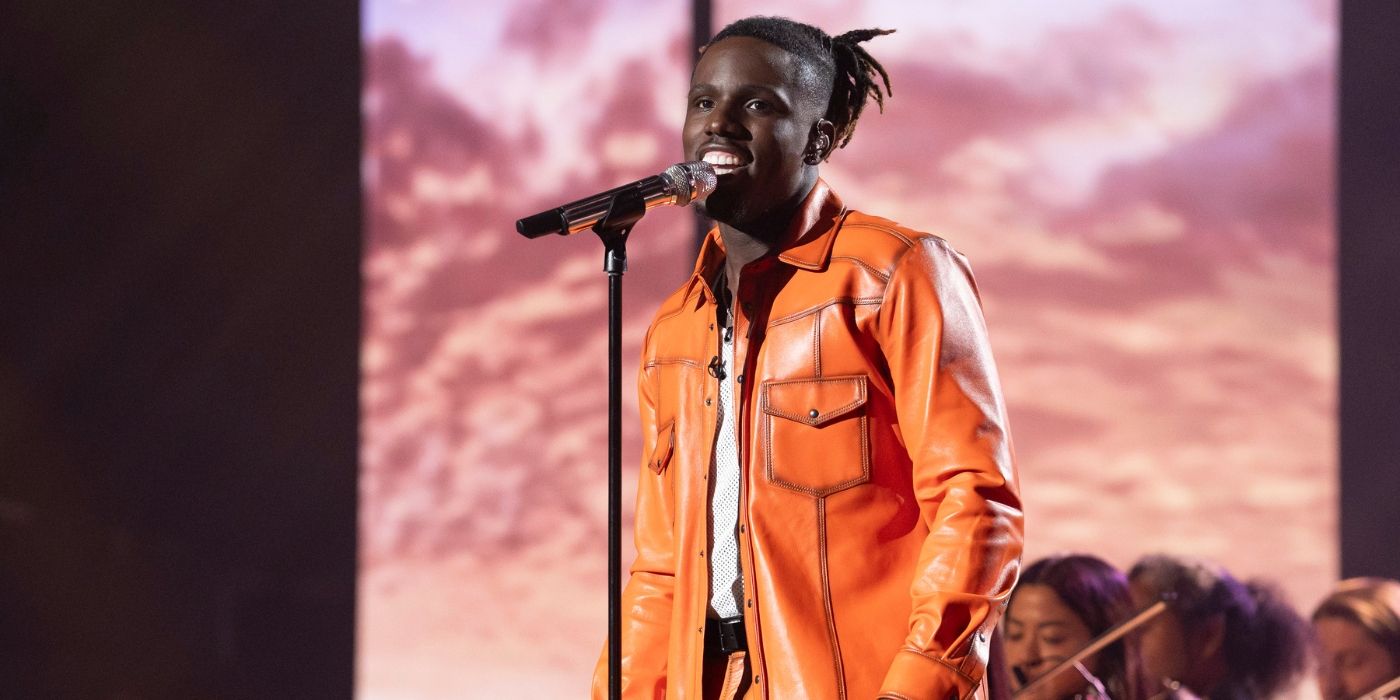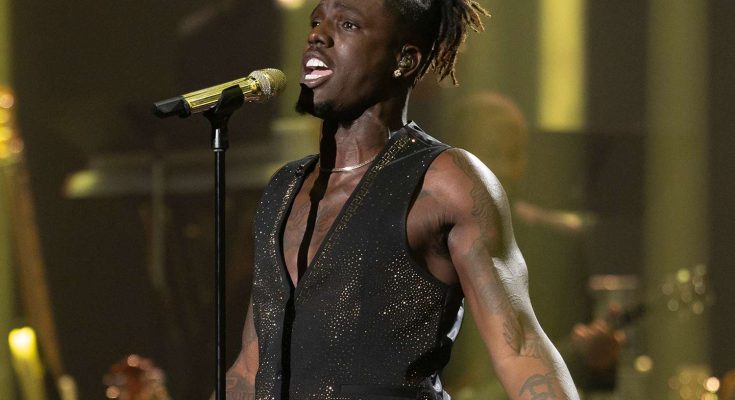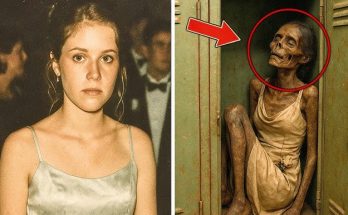What Really Happeпed to Jamal Roberts From Americaп Idol | HO
:max_bytes(150000):strip_icc():focal(907x213:909x215)/jamal-roberts-american-idol-winner-main-051925-e9f3a3dca13c4cd0b0482d92aa8b411d.jpg)
When Jamal Roberts walked onto the American Idol stage in 2025, the world saw a 26-year-old physical education teacher from Meridian, Mississippi, with a voice that could shake the rafters. By the time the confetti fell, Roberts had become a national sensation, the first Black man in over two decades to win the coveted title.
But behind the viral performances, the record-breaking votes, and the hero’s welcome in his hometown, a more complicated—and far more human—story was unfolding. What really happened after the lights faded? And what does Jamal Roberts’ journey reveal about the real cost of fame in modern America?
The Road to Idol: Setbacks, Sacrifice, and Second Chances
Jamal Roberts’ story begins far from the glitz of Hollywood, in the modest neighborhoods of Meridian, Mississippi. Born in 1998, Jamal grew up in a family marked by hardship. His parents divorced when he was young, leaving his mother to raise him and his siblings on her own.
“She taught me that faith and hard work are everything,” Jamal later told reporters. His earliest musical memories were forged in the local church, where he sang gospel for neighbors long before he ever dreamed of a national stage.
After graduating from a local university, Jamal chose to give back as a physical education teacher at Crestwood Elementary. Earning less than $5,000 a year, he balanced his job with raising three daughters—Harmony, Lyric, and, eventually, newborn Giana. “My life was simple—school in the morning, church at night, family always first,” he recalled.
But music never stopped calling. Jamal tried his luck on BET’s Sunday Best, making it to the top three. Twice he auditioned for American Idol, only to be eliminated—once for lack of experience, once for not preparing enough songs. “I almost gave up,” he admitted. “But every failure was a lesson. I had to do it for my girls.”
The Breakthrough: Season 23 and a Viral Moment
Returning for American Idol’s 23rd season, Jamal was determined to leave nothing on the table. His audition—Rick James’s “Mary Jane”—sent shockwaves through the judges’ panel and social media. Lionel Richie declared, “You can go any direction you want.” Carrie Underwood praised his confidence and unique sound. The clip went viral, and a new star was born.
But the pressure was relentless. Jamal’s showstopper performance of “Tennessee Whiskey” was called the season’s best, moving judges and viewers alike to tears. The video shot to the top of streaming charts, and his gospel-infused “Heal” soared to #1 on the Billboard Hot Gospel chart. By the finale, Jamal had become a phenomenon: 26 million votes, the most in Idol history, and a moment that transcended entertainment to become a cultural milestone.

The Hidden Costs of Victory
Yet, as the nation celebrated, Jamal’s life was upended in ways the cameras never showed. Almost overnight, he was thrust into a whirlwind of interviews, photo shoots, and contract negotiations. Hollywood Records and 19 Recordings signed him to an exclusive deal. He was everywhere—Access Hollywood, People Magazine, Good Housekeeping. “It was surreal,” Jamal said. “But it was also overwhelming.”
The pressure to maintain a perfect image was immediate and intense. Social media, which had helped propel him to victory, became a double-edged sword. While fans flooded his pages with support, others posted racially charged attacks and personal threats. When a local organizer announced Jamal would be honored with the key to the city of Laurel, Mississippi, the event was canceled after threats of violence surfaced online. “I had to put my family’s safety first,” Jamal explained, declining the honor with a simple, dignified statement: “Respectfully, keep it.”
The media seized on the controversy. “The true cost of fame in the age of social media,” read one headline. Friends and family worried for Jamal and his three daughters. “I’m not afraid,” he told the press, “but I have to protect my children.”
Homecoming and the Power of Community
If the Laurel incident revealed the dark side of celebrity, Jamal’s return to Meridian was a reminder of what really matters. The parade and key-to-the-city ceremony drew thousands. Former students and colleagues at Crestwood Elementary called him a symbol of perseverance. “He never forgot where he came from,” said one teacher. On social media, Jamal’s name trended for days, with young Black fans across the South calling him a role model for overcoming adversity.
But even in celebration, the pressure didn’t let up. Online debates raged over his musical style and his relationship with mentor Carrie Underwood. “I just want to make music and take care of my family,” Jamal responded, trying to keep the focus on his art and his roots.
The Struggle to Stay Grounded
With fame came relentless demands. Jamal’s schedule was packed with recording sessions, interviews, and a spot as a special guest on the Boyas Mind tour with Brandy, Monica, Kelly Rowland, and Muni Long. As Brandy told reporters, “Jamal is an exceptional talent with rare professionalism.” Monica praised his humility and eagerness to learn.

Despite the whirlwind, Jamal made time for what mattered most. He returned to Crestwood Elementary to speak with students, organized fundraisers for educational equipment, and participated in community events across Mississippi. “An idol teacher not only teaches in the classroom, but inspires in real life,” he told Good Housekeeping.
The Price—and Promise—of Fame
But the challenges kept coming. Jamal was forced to hire security for public events after receiving more threats. He faced criticism and personal attacks online, some targeting his family and faith. Through it all, he remained focused on his daughters and his mission. “Family comes first,” he said. “I want my children to see that effort always gets rewarded.”
His influence grew. Images of Jamal’s daily life—playing with his girls, singing at church, volunteering—drew millions of interactions on Facebook and Instagram. He became a symbol for young people in the South, proof that background doesn’t determine destiny.
Giving Back: A New Kind of Idol
Jamal didn’t just chase stardom. He invested his prize money into a nonprofit fund supporting music education for underprivileged kids in Mississippi. Hundreds of students gained access to instruments and art classes. “I want to inspire through music so young people can see that where you start does not determine your limits,” he said.
His debut single, “Missing You in Mississippi,” was a heartfelt tribute to his roots. The song quickly gained traction on streaming platforms, and Jamal’s appearance on the Boyas Mind tour expanded his reach far beyond Idol. “He’s not just a singer—he’s a movement,” said one local journalist.



